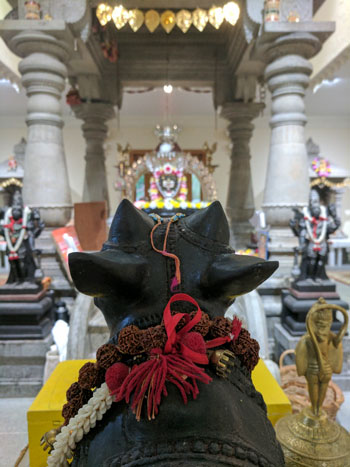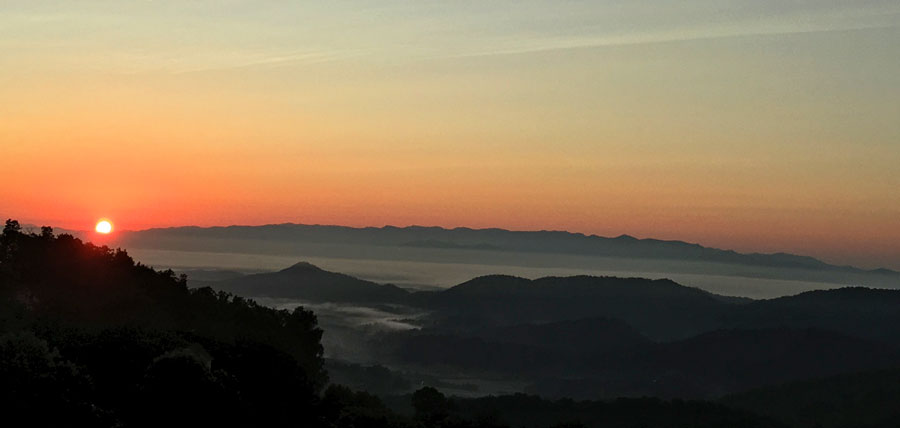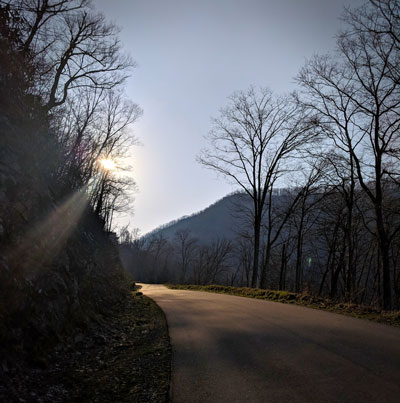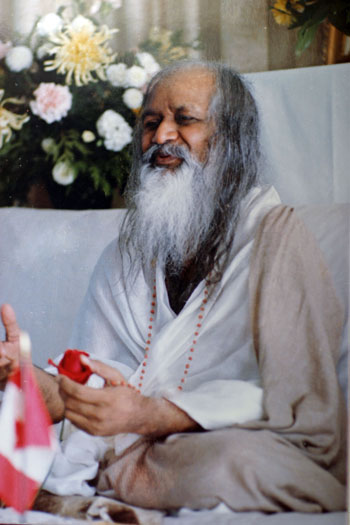by Michael Mamas | Tuesday, October 9, 2018 | Spiritual Evolution, The Gods |
 What form of God does one worship?
What form of God does one worship?
Karma is the major determining factor for most people regarding what form of God they worship. For example, people born into a Christian family tend to worship a particular representation of God. The other factor is the deepest meaning of Ishta Devata.
“Ishta Devata” means the “chosen or personal form of God” one worships. On the surface, one’s Ishta Devata is usually determined by family or community influence… their Karma.
On the deepest level, however, one’s Ishta Devata is based upon one’s subtle physiology. Though rare, there are those who are born into a family whose ‘family Ishta Devata’ is the same as the individual’s Ishta Devata at the very depth of that person’s being. On that deepest level, one’s physiology resonates with a particular form of God. That form is their true Ishta Devata.
However, rarely do people refine their physiology to that profound level. Yet, upon awakening to that level, their physiology continues to refine until they can ‘tune in’ to other forms of God on that deepest level. In time, it is their choice, from moment to moment, which form of God they resonate with at the deepest level of existence.
© Michael Mamas. All rights reserved.
by Michael Mamas | Tuesday, July 3, 2018 | Spiritual Evolution, The Gods |
The Sun is God… Think mapping in basic mathematics. That is how the universe works. Pebble tossed in a pond… the Center of your Being… it is all the same One…

© Michael Mamas. All rights reserved.
by Michael Mamas | Tuesday, April 17, 2018 | Clarifying Confusion, Spiritual Evolution |
 Everything exists transgradiently, including our intuitive abilities. More superficially, intuition is largely rooted in getting a feeling for the situation and some rational or commonsensical perspective as well. Then we come to a reasonable conclusion that could be called intuition or at least some degree of intuition. But what is intuition on the deepest level and how do we cultivate it?
Everything exists transgradiently, including our intuitive abilities. More superficially, intuition is largely rooted in getting a feeling for the situation and some rational or commonsensical perspective as well. Then we come to a reasonable conclusion that could be called intuition or at least some degree of intuition. But what is intuition on the deepest level and how do we cultivate it?
On the deepest level of our being, we are one with God. Scientists might say it another way: We are in touch with the unified field at the depth of our being, that place where we are one with everything… that place that is beyond time and space… that place where you already know everything, because you are eternally one with everything.
BUT: that place within us is beyond experience. Which is why we call it the Transcendent. It transcends relative existence. It transcends experience. As we approach it, we sense and feel it more deeply, but it cannot be grasped. It is beyond thing-ness.
So let’s take a look at the structure of our awareness (the structure of existence) and see where Intuition (with a capital “I”) comes from. To really know this is to experience it. Otherwise, it is just a concept or idea. Oftentimes, Knowledge is thought of as a concept, but really it is much more than that. Actually, it is an experience.
The experience of the deepest level of Intuition begins with the experience of the relationship of the Transcendent with our relative existence. It is the distinction between the two. The distinction between Intellect (intellect here meaning “structure” or “relativity”) and the Transcendent (Oneness) – Patanjali discussed this in his Yoga Sutras. The distinction between Atman and Sattva (finest relative), or Atman and Buddhi. To Know that (to experience that) is to experience the gap or separation between the two – between the Transcendent (the Absolute) and the relative (what we think of as creation or existence).
The gap between the two is thought of in terms of SMRITI (memory). Within the relative is the ‘memory’ of the perfection of the Transcendent. That perfection is what gives the relative its structure. It is like the underlying matrix or pattern that is the foundation upon which all relativity is based. As our awareness becomes clear, this all becomes clear and our ‘memory’ of that Divine perfection becomes more clear and undistorted.
Everything (all past, present, and future) exists in the Transcendent. That is what it means to be beyond space and time. I have discussed in detail the nature of space and time in other blogs and lectures. That Knowledge is brought out to our minds in relative existence through the gap… through memory of the Transcendent. To cultivate Intuition (on the deepest level) is to enter the gap – to see within the gap, and bring what you see there into the conscious awareness undistorted.
Needless to say, that level is very delicate. So even after we cultivate the ability to ‘see’ the distinction between the Intellect and the Transcendent and then enter and see within the gap, our personality self has its bias… it’s wanting… it’s desire for things to be a certain way. That wanting is enough to distort what we see within that gap. That is why it is in some ways easier to ‘see’ (to have clear Intuition) regarding others rather than regarding ourselves. Our desires get in the way.
The beauty of Vedic Knowledge is that it provides a detailed account of the nature and structure of existence on profound levels. Yet that knowledge only becomes real Knowledge when it is experienced. Otherwise, it is just a concept. The concepts, of course, are very good. However, the real meaning lies in the direct and true Knowing. Understanding the nature of Intuition is just one example. It is within your grasp to become a person of true Knowledge. Yet, very few people reach for that height. Consider yourself to be most fortunate that you are reaching in that direction.
People often ask me what more than can do to evolve. The answer is simple: keep a steady hand on the rudder. Keep going. Don’t stop. There will be obstacles along the way. Most of the obstacles are in your heart and your mind. Remain committed to the highest. I offer you the path. But it is up to you to traverse it.
© Michael Mamas. All rights reserved.
by Michael Mamas | Tuesday, December 12, 2017 | Spiritual Evolution |
 "The greatest help to spiritual life is meditation. In meditation we divest ourselves of all material conditions and feel our divine nature. We do not depend upon any external help in meditation. The touch of the soul can paint the brightest color even in the dingiest places; it can cast a fragrance over the vilest thing; it can make the wicked divine–and all enmity, all selfishness is effaced."
"The greatest help to spiritual life is meditation. In meditation we divest ourselves of all material conditions and feel our divine nature. We do not depend upon any external help in meditation. The touch of the soul can paint the brightest color even in the dingiest places; it can cast a fragrance over the vilest thing; it can make the wicked divine–and all enmity, all selfishness is effaced."
– Swami Vivekananda,
Complete Works, 2. 37.
Once you learn the Surya Ram Meditation, sometimes the hard part is just getting yourself to sit down and do it. Usually once you get started and into it, everything flows just fine. So why not make a commitment to meditate at least 5 minutes twice a day? Of course, once you have started the meditation, if you want to go over the 5 minutes, that is great.
© Michael Mamas. All rights reserved.
by Michael Mamas | Friday, November 10, 2017 | Spiritual Evolution |
“To establish order, disorder has to be shaken…”
Maharishi’s profound insight into the transformation
of the world is heartening for us at this time
“In order to establish order, disorder has to be shaken. And for shaking to remain under control, we who are at the basis, at the level of Para (the transcendent), have to be Para—that is, unreachable by the surface turmoil. In that integrated state, the fast-moving chaos and change will pass away in a steady manner.
“So, we have to be very steady. We have to be very careful not to get upset by little or big things. If we lose our basis, our dignity, the phase transition will take much longer. Don’t give importance to things that may upset us.
“This is a very precious time for the world. Everything depends on how our awareness is—just don’t let it be shaken. Our awareness is the basis of all these transformations. More than ever before, time demands we remain completely ourselves.
“It is a very tender, delicate time for us—we should not become angry, indifferent, or sad—we should just be like an ocean.
“The evolutionary power is waking up. We shake it, then leave it—then after some time shake it again. Each time a new level of purity, awakening is added.“
– Maharishi
© Michael Mamas. All rights reserved.
 What form of God does one worship?
What form of God does one worship?

 Everything exists transgradiently, including our intuitive abilities. More superficially, intuition is largely rooted in getting a feeling for the situation and some rational or commonsensical perspective as well. Then we come to a reasonable conclusion that could be called intuition or at least some degree of intuition. But what is intuition on the deepest level and how do we cultivate it?
Everything exists transgradiently, including our intuitive abilities. More superficially, intuition is largely rooted in getting a feeling for the situation and some rational or commonsensical perspective as well. Then we come to a reasonable conclusion that could be called intuition or at least some degree of intuition. But what is intuition on the deepest level and how do we cultivate it? "The greatest help to spiritual life is meditation. In meditation we divest ourselves of all material conditions and feel our divine nature. We do not depend upon any external help in meditation. The touch of the soul can paint the brightest color even in the dingiest places; it can cast a fragrance over the vilest thing; it can make the wicked divine–and all enmity, all selfishness is effaced."
"The greatest help to spiritual life is meditation. In meditation we divest ourselves of all material conditions and feel our divine nature. We do not depend upon any external help in meditation. The touch of the soul can paint the brightest color even in the dingiest places; it can cast a fragrance over the vilest thing; it can make the wicked divine–and all enmity, all selfishness is effaced."
